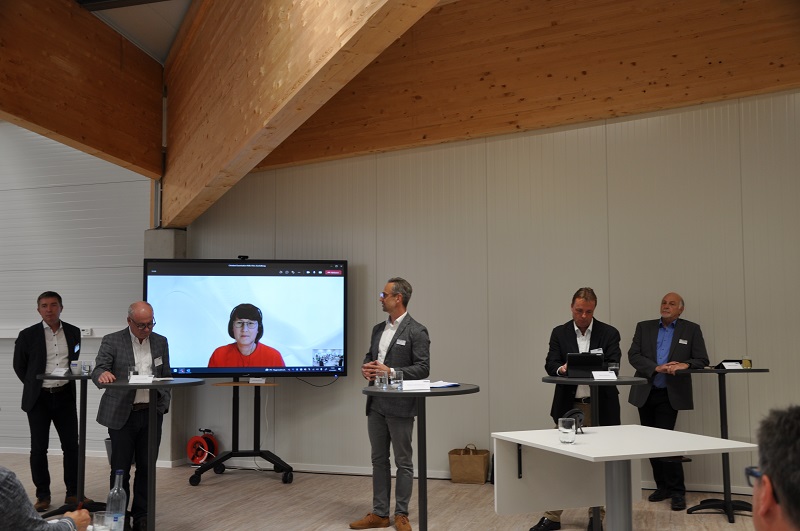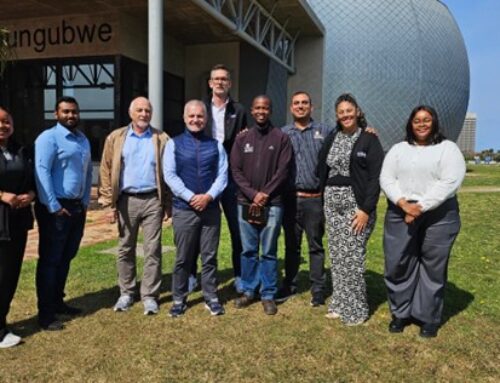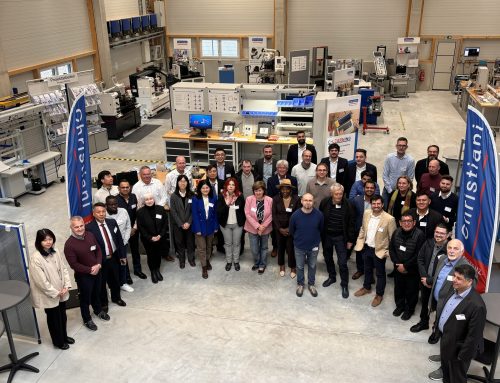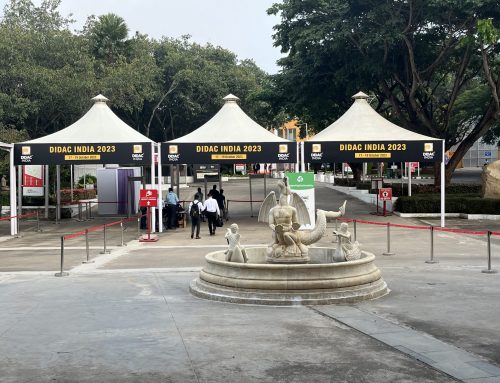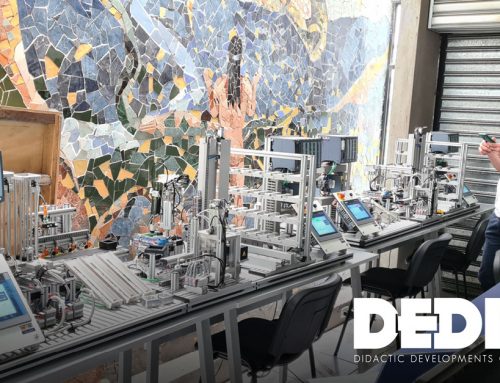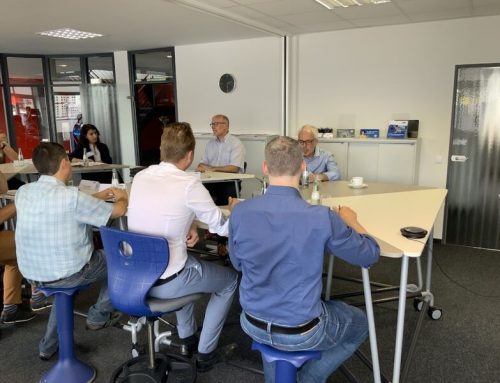Roundtable discussion at Christiani in Landsberg
The Christiani company invited: Around 40 experts from industry, the crafts sector and from chambers of industry and commerce, chambers of crafts and vocational schools came to the Christiani Competence Centre in Landsberg (near Munich) for the first Examination Hub.
“A hub is a junction where impulses come in and go out,” explained Oliver Heckemann, member of the Christiani Management Board. The new Examination Hub event format aims to bring together experts with the goal of discussing and advancing the future of the examination.
In order to examine the topic from different perspectives, Christiani invited five experts to the roundtable. The discussion was held by:
- Thomas Meyer, Head of the Examination Task and Teaching Material Development Office (PAL) of the Stuttgart Chamber of Industry and Commerce (IHK)
- Hanns Deniffel, Head of Vocational School 1 in Kempten
- Alex Schaurer, Head of the Digitalisation, Organisation and Processes Department of the Chamber of Industry and Commerce for Munich and Upper Bavaria
- Steffi Michailowa, HR Specialist – Learning & Education Portfolio of ABB Training Center GmbH & Co. KG in Heidelberg
- Helmut Fromm, Managing Partner of -Ing. Paul Christiani GmbH & Co. KG
Moderated by Oliver Heckemann, an engaged and in-depth discussion arose with the participants of the podium and the audience. It quickly became clear that a sense of proportion is required in all developments towards digital examinations. The examination medium is not an end in itself, rather it is always about determining competence in an examination and evaluating the trainees’ ability to act professionally. This must be in priority in all considerations and developments.
Where does the digitalisation of the examination bring advantages?
A central advantage of the digital examination is an economic one: the evaluability of the results. For certain types of tasks, the result is already known when the examinee has answered and handed in his tasks. The extent to which free-text tasks can also be evaluated and make sense was a point that was discussed at length.
The desire for flexibility meets with legislation
Thomas Meyer, the new head of PAL since 1.09.21, emphasised that some of the examinations are already digital. But how far do they want to go with digitalisation? In a first step, Meyer wants to tackle the issue in 2021/2022 with digital competence assessment for partial qualifications. In the next few years, a digital “test examination” for a selected technical training occupation is to follow. Various hurdles still need to be overcome on the way to a digital final examination for industrial occupations. These include, among other things, the corresponding legal framework.
Do digital tasks offer didactic added value?
“If examination is digitalised, it must be didactically at least as good as analogue, actually better,” Helmut Fromm, who has been dealing with technical examination tasks for 50 years, made clear. “The new possibilities with media and their targeted use will play a decisive role in this,” he explained further.
Audio, video and animations can be used to make examination tasks more vivid and closer to technical practice. All the experts on the podium seemed to agree on this. “Augmented and virtual reality can be a conceivable addition to the practical examination,” said Fromm. This would further blur the separation of theory and practice.
Summary: The human being at the centre of the examination
The unanimous opinion at the event was: There is no way around the digital examination. “That is why the chamber of industry and commerce for Munich and Upper Bavaria already conducted a test in autumn 2020 with the digital examination platform from Christiani, EXPLA, for the training occupation mechatronics,” explains Alex Schaurer, who can look back on many years of experience in organising technical examinations. “This went very well, the system works, but the examination tasks still need to be adapted more to the new digital world. What is particularly interesting for a Chamber of Industry and Commerce is the reduction of the examiners’ workload,” explains the expert.
How far the digital transformation of the examination will go is still open. There is agreement that the focus must remain on people in the future. The economy needs well-trained specialists. And artificial intelligence cannot replace the know-how of trainers and examiners.
The Examination Hub has proven itself as a forum where questions about the future of examinations can be asked and discussed. It provides the space in which impulses are received that are then carried forward to other bodies. The next Examination Hubs are already being planned for 2022.
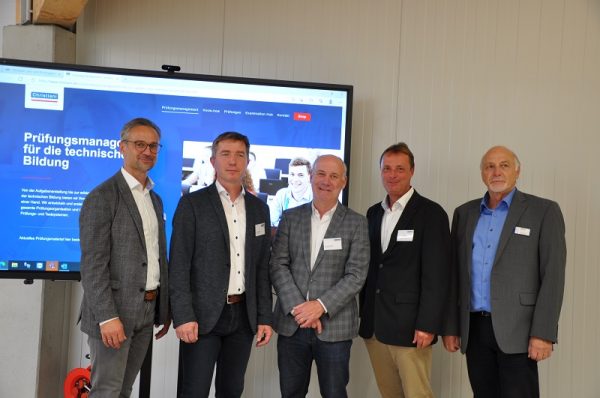
The participants of the roundtable discussion on the examination of the future (from left to right)
Oliver Heckemann, Member of the Management Board of Christiani, Thomas Meyer, Head of the Examination Task and Teaching Material Development Office (PAL) of the Stuttgart Region Chamber of Industry and Commerce, Hanns Deniffel, Head of Vocational School 1 in Kempten, Alex Schaurer, Head of the Digitalisation, Organisation and Processes Department of the Chamber of Industry and Commerce for Munich and Upper Bavaria and Helmut Fromm, Managing Partner of Dr.-Ing. Paul Christiani GmbH & Co. KG.; Steffi Michailowa, HR Specialist – Learning & Education Portfolio at ABB Training Center GmbH & Co. KG in Heidelberg was connected via video chat.
